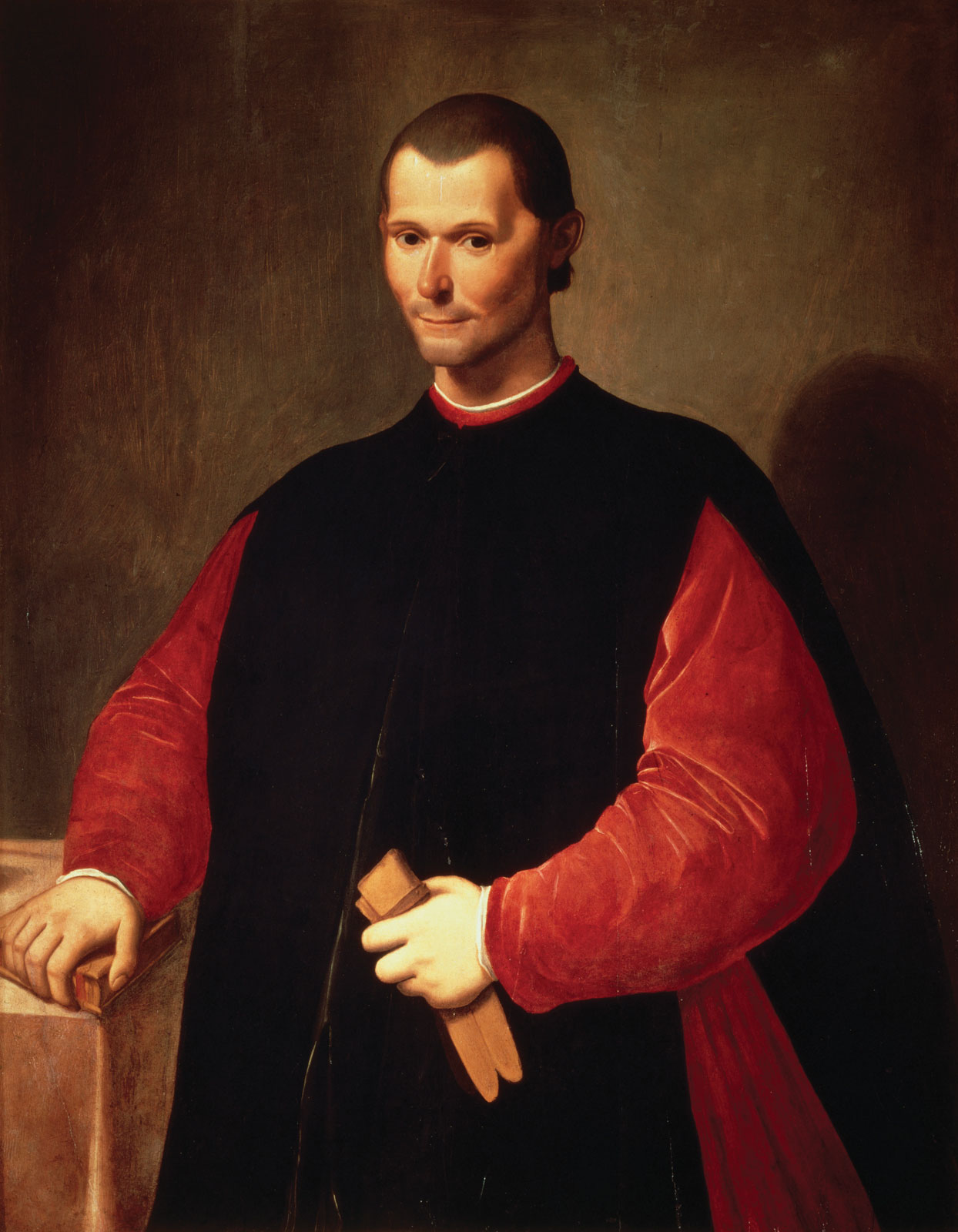A 6-minute video about the 15th-16th Century political thinker Niccolo Machiavelli.
Watch:
Machiavelli
Part
1: First minute:
Adjectives used (in order): (unscramble)
yls
shondiest
iormmal
bda
fenrlidy
hstone
dink
kdra
rhundaned
icen
Adjectives used (in order): (unscramble)
yls
shondiest
iormmal
bda
fenrlidy
hstone
dink
kdra
rhundaned
icen
Comprehension and vocab detail….
According to Machiavelli:
1.We shouldn't think that politicians are bad for _____ing, _________ing and _________ing.
2. A good politician knows how to ______, en_____ and bring ______ to the State.
3. What citizens most need from the rulers is ____________ness, not simply that they are kind and nice.
According to Machiavelli:
1.We shouldn't think that politicians are bad for _____ing, _________ing and _________ing.
2. A good politician knows how to ______, en_____ and bring ______ to the State.
3. What citizens most need from the rulers is ____________ness, not simply that they are kind and nice.
Part
2: 1:00 - 2:40
Factual
details:
Florence 1469: _____
1494: Medici family _________ from Florence
Return of Medici: Machiavelli tortured and e______d
Two works: _________ and ________
Central problem of politics: _______
Opposed to the Christian sense of being a "_____ ______"
To defend the State against threats to stability the Prince must know how to _____ and above preserve his r__________n
1. A good leader must seem unapproachably s____ but r__________.
2. For a Prince it is better to be f____d than l_____d.
Discuss:
1. Is Machiavelli right? Is what he was saying as true today as it was in his particular time and place?
2. Is you country’s leader or leaders “Machiavellian” in this sense that they are not “nice”, but rule effectively?
Florence 1469: _____
1494: Medici family _________ from Florence
Return of Medici: Machiavelli tortured and e______d
Two works: _________ and ________
Central problem of politics: _______
Opposed to the Christian sense of being a "_____ ______"
To defend the State against threats to stability the Prince must know how to _____ and above preserve his r__________n
1. A good leader must seem unapproachably s____ but r__________.
2. For a Prince it is better to be f____d than l_____d.
Discuss:
1. Is Machiavelli right? Is what he was saying as true today as it was in his particular time and place?
2. Is you country’s leader or leaders “Machiavellian” in this sense that they are not “nice”, but rule effectively?
Part 3: 2:40 - 3:53
Gist:
What happened to Girolamo Savonarola? What does it teach us about politics?
What happened to Girolamo Savonarola? What does it teach us about politics?
Hearing perception, vocab focus:
Circle the words you hear cross out the ones you don't hear.... (they're in order)
merciful pitiful peaceful generous reasonable tolerant realistic idealistic democratic incompatibility justice governance ethics dictatorship tyranny vengeful angry
Part 4 3:53 - 5:28
"Virtu" involves:
W
S
S
B
R
1. What is "criminal virtue"?
2. What are some of the criteria Machiavelli made for the use of criminal virtue?
____________, ___________, ___________, ____________
3. Why did Cesare Borgia have his own mercenary Romero cut in half?
4. Why did Borgia cut taxes, hold festivals, import cheap grain and build theatres?
Part 5: 5:28 - end
True or false?
1. Machiavelli's works were banned because they were considered unchristian.
2. Machiavelli believed that morality and politics are not related at all.
3. Machiavelli believed in realism over moralism.
4. Effectiveness and niceness are compatible.
Discussion:
Circle the words you hear cross out the ones you don't hear.... (they're in order)
merciful pitiful peaceful generous reasonable tolerant realistic idealistic democratic incompatibility justice governance ethics dictatorship tyranny vengeful angry
Part 4 3:53 - 5:28
"Virtu" involves:
W
S
S
B
R
1. What is "criminal virtue"?
2. What are some of the criteria Machiavelli made for the use of criminal virtue?
____________, ___________, ___________, ____________
3. Why did Cesare Borgia have his own mercenary Romero cut in half?
4. Why did Borgia cut taxes, hold festivals, import cheap grain and build theatres?
Part 5: 5:28 - end
True or false?
1. Machiavelli's works were banned because they were considered unchristian.
2. Machiavelli believed that morality and politics are not related at all.
3. Machiavelli believed in realism over moralism.
4. Effectiveness and niceness are compatible.
Discussion:
1. Are effectiveness
and compassion incompatible at times? Have you ever had to make any “difficult
decisions” (moral trade-offs)?
2. Do you think
Machiavelli was a cynical person or merely a realist?
3. Should leaders in
modern democracies have more idealism or less?
Language focus:
verbs (phrasal and verb + preposition)
Listen from 0:00 to 1:32
1. Effectiveness may well ____ _____ some darker arts.
2. Once we understand this basic requirement, we _____ __ __ less disappointed and clearer
3. He ___ ___ ____ an important diplomat __ a semi-successful general, __ an enemy of the state.
Adverbs
Listen from 1:32 - 2:42
1. ____ a failed politician
2. a _____ great man
3. He should seem ________ strict
4. It would __________ be wonderful
5. This is _____ what keeps people in check
Further material....
Watch:
Machiavelli

No comments:
Post a Comment